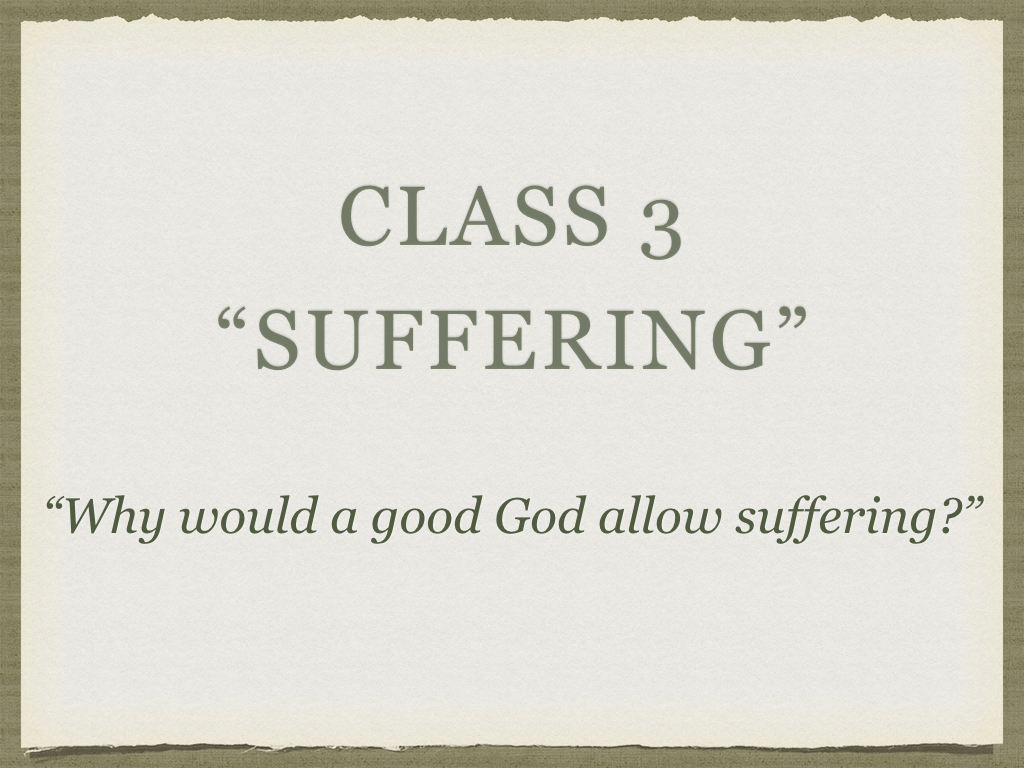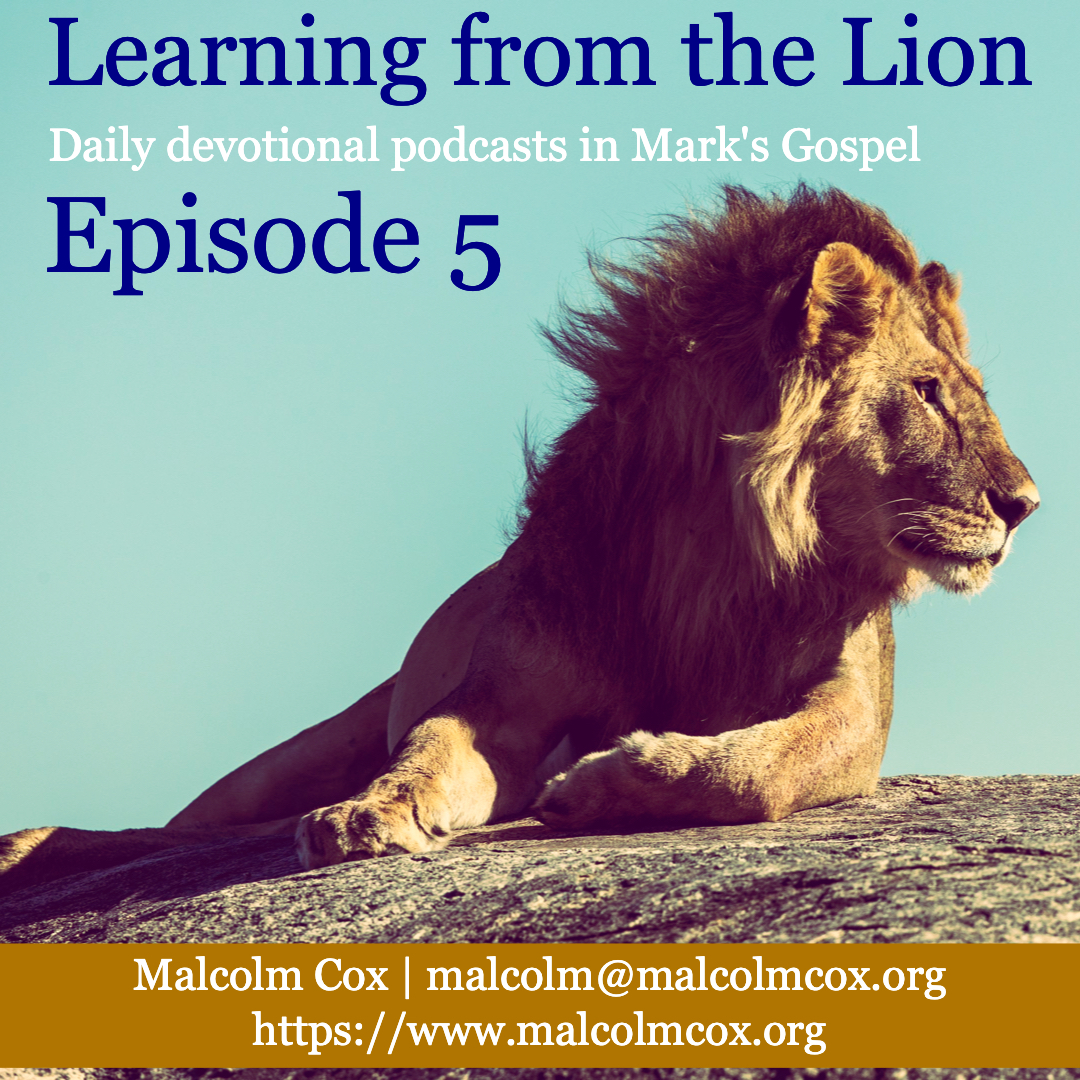Three Big Questions
Class 3: “Why would a good God allow suffering?”
Introduction
- “Always be prepared to give an answer to everyone who asks you to give the reason for the hope that you have. But do this with gentleness and respect….” (1 Peter 3:15–16 NIV11)
Before you begin
- Note: this is a sensitive and difficult topic – avoid simplistic answers
- Ask what it is about this topic that interest them
- Ask what kind of evidence they would need in order to trust in a good God
- Ask if they would be open to revising their opinion if convincing evidence/arguments were presented to them
- Do not trivialise suffering
Introduction: deal with your elephant
If we are going to help people with their questions about suffering, it presupposes that we have worked through our own and found our own perspective on suffering that makes sense to us.
You have to make peace with your own suffering if you’re going to help other people understand suffering and God.
Questions needing an answer
- God could have created a world without suffering. Why didn’t he?
- Suffering is pointless
- The fact God allowed suffering shows us he is not a God of love
Positive aspects of suffering
- It’s how we g……..
“No discipline seems pleasant at the time, but painful. Later on, however, it produces a harvest of righteousness and peace for those who have been trained by it.” Heb 12:11
“And we know that in all things God works for the good of those who love him, who have been called according to his purpose. For those God foreknew he also predestined to be conformed to the image of his Son, that he might be the firstborn among many brothers and sisters.” Rom 8:28–29
“I want to know Christ—yes, to know the power of his resurrection and participation in his sufferings, becoming like him in his death, and so, somehow, attaining to the resurrection from the dead.” Philippians 3:10–11
- It’s how we find t…..
- It points us towards G…
- “We can ignore even pleasure. But pain insists upon being attended to. God whispers to us in our pleasures, speaks in our conscience, but shouts in our pains: it is his megaphone to rouse a deaf world.” CS Lewis, “The Problem of Pain”
- It m…………….. us to make a difference
- “For we do not have a high priest who is unable to empathise with our weaknesses, but we have one who has been tempted in every way, just as we are—yet he did not sin” (Hebrews 4:15 NIV11)
- ““The Spirit of the Lord is on me, because he has anointed me to proclaim good news to the poor. He has sent me to proclaim freedom for the prisoners and recovery of sight for the blind, to set the oppressed free, to proclaim the year of the Lord’s favour.”” (Luke 4:18–19 NIV11)
Conclusion
- How do these thoughts affect your view of God?
- How do these thoughts affect your view of Christianity?
- Would you like to know more?
- Scripture to share: “Anyone who chooses to do the will of God will find out whether my teaching comes from God or whether I speak on my own.” John 7.17
Resources
- https://preparetoanswer.wordpress.com/2019/01/03/why-does-god-allow-suffering/
- “A grief observed”; “The Problem of Pain”, CS Lewis
- “Walking with God through pain and suffering”, Tim Keller
- “Baffled to fight better” – a commentary on Job, Oswald Chambers
- “When God is silent”, Douglas Jacoby, and, https://www.douglasjacoby.com/
- The Psalms of communal lament: Psalms 44, 60, 74, 79, 80, 85, 90.
Please add your comments on this week’s topic. We learn best when we learn in community.
Do you have a question about teaching the Bible? Is it theological, technical, practical? Send me your questions or suggestions. Here’s the email: malcolm@malcolmcox.org.
If you’d like a copy of my free eBook on spiritual disciplines, “How God grows His people”, sign up at my website: http://www.malcolmcox.org.
Please pass the link on, subscribe, leave a review.
“Worship the LORD with gladness; come before him with joyful songs.” (Psalms 100:2 NIV11)
God bless, Malcolm
PS: You might also be interested in my book: “An elephant’s swimming pool”, a devotional look at the Gospel of John



